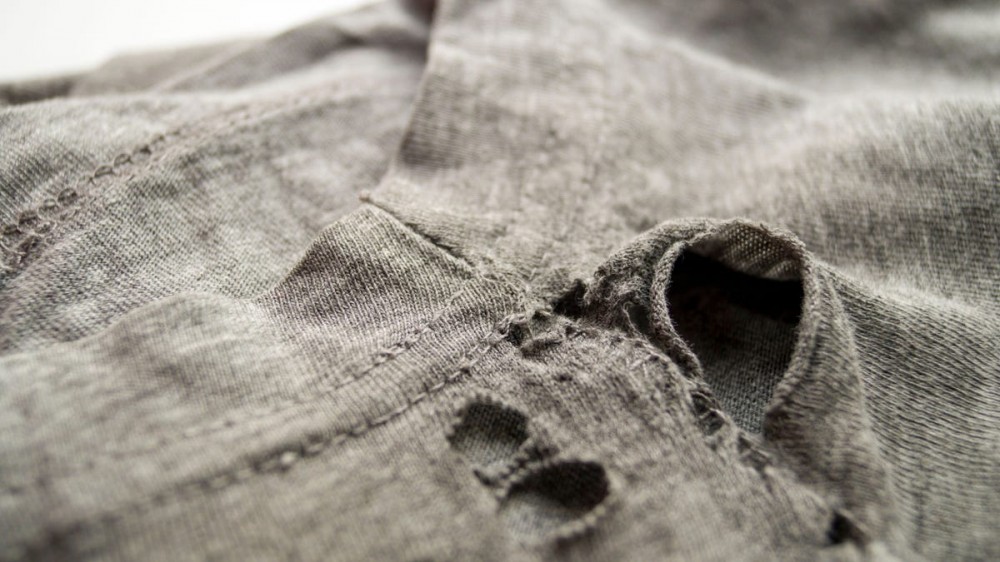
We all love the thrill of an exciting shopping spree. But several months later, you might notice little holes appear in your shirts, and they’re all in the exact same spot!
What are these tiny holes? And where do they come from? Turns out, it’s all about friction.
TikTok content creator @starrynoisy vented about these pesky holes online, and when she did, she learned that the problem is common and has an answer that’ll make you say, “Oh yeah, that makes sense.” The tiny holes are created by friction against your shirt.
Zippers or buttons on your jeans rub against your shirts throughout the day. Over time, the friction on the fabric forms these tiny holes. Another cause? leaning against countertops, and seatbelts can also contribute to this annoying problem.
No, moths aren’t getting to your clothes. Don’t dive for the moth balls just yet.
@starrynoisy It’s not moths #whatisthat #wardrobemalfuncition #willsmith
♬ Originalton – ???
Throughout the years, retailers have transitioned to “fast fashion,” a way to harness fleeting trends at low prices. The costs draw in customers looking to save money on clothes as well as those looking for a trendy piece that’s not a design price. However, these items are often lower-quality materials (and created in ethically questionable ways). This means our clothes are now more disposable than ever thanks to lower-grade fabric.
So, what do you do?
While purchasing higher-quality tops is the best option, there are still ways to protect your shirts from developing these pesky holes.
Incorporate the “French tuck” into your stylish routine. This style creates space between your t-shirt and jeans to decrease the likelihood of holes. You can also wear an apron if you spend a lot of time leaning against a counter for work or daily activities.
If some of your shirts are a little too worn for wear, consider repurposing them rather than throwing them away.






